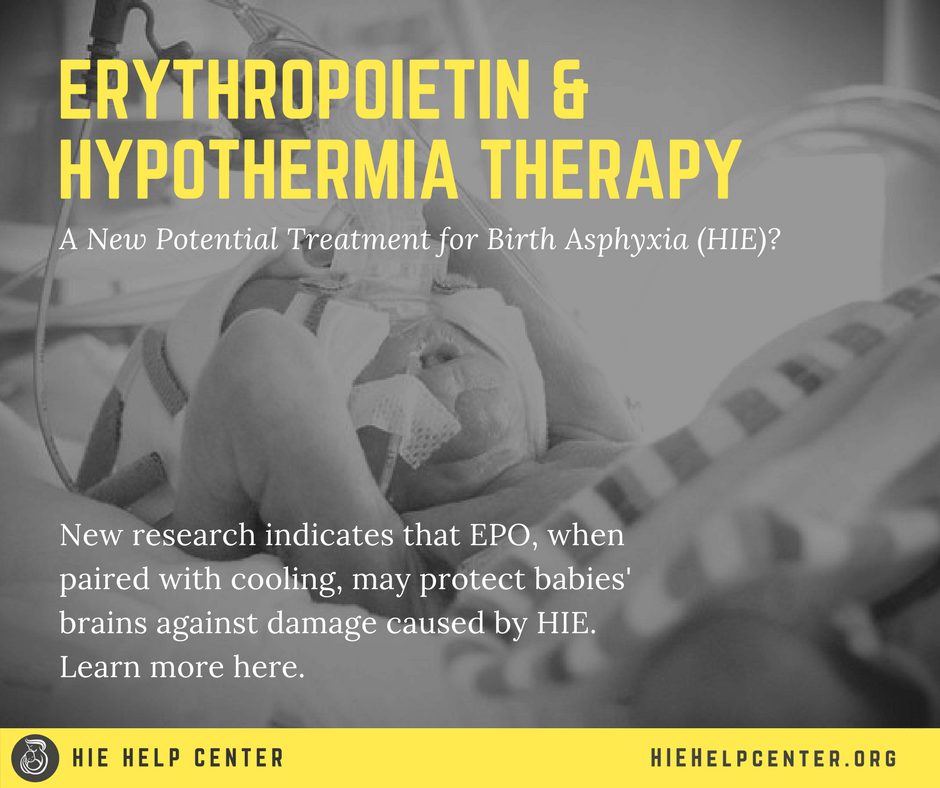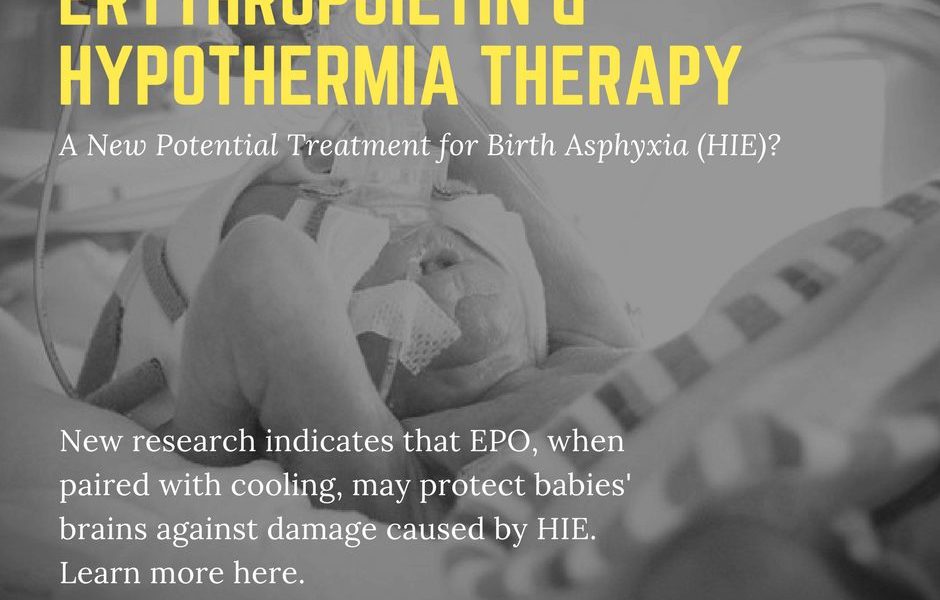
Erythropoietin (EPO) is a cytokine that has proven to have neuroprotective and neuroregenerative benefits in the brain (1). Researchers have completed preliminary clinical trials that indicate erythropoietin (EPO) may be useful in helping protect babies’ brains against damage caused by hypoxic-ischemic encephalopathy (HIE). The study looked at the efficacy of EPO when paired with hypothermia therapy (also known as brain cooling, head cooling, or whole-body cooling, depending on technique type). Their work, presented at the 45th Annual Meeting of the Child Neurology Society, is one potential method of helping minimize the long-term impairments associated with brain injuries at birth.
Babies who had both head cooling and erythropoietin treatment had a lower likelihood of developmental issues by one year of age (2). Although the study focuses on short-term development, it bolsters hope that the combination treatment can help babies’ long-term development after a hypoxic-ischemic injury. Newborns with moderate to severe hypoxic-ischemic encephalopathy (HIE) are at high risk for death or moderate-to-severe disabilities, and current standards of care involve inducing hypothermia to help brain cells repair as much as possible. Typically, hypothermia therapy must be initiated within the first six hours after birth. The treatment, however, is not perfect – even with hypothermia therapy, mortality rates for HIE are still 44-51% (1). Additionally, a subsequent cerebral palsy diagnosis still can occur for infants that receive the therapy.
The phase II trial was a randomized, double-blind placebo-controlled multicenter trial, and looked at a total of 50 newborns. 24 newborns received EPO and hypothermia therapy, while 26 received hypothermia and placebo saline (1). Babies treated with EPO had significantly lower global brain injury scores, lower incidence of moderate/severe brain injury, and lower incidence of subcortical and cerebellar injury.
Once the babies in the trial were one year old, researchers assessed their development using the Alberta Infant Motor Scale and the Warner Initial Developmental Evaluation. Babies treated with EPO and hypothermia therapy scored better than those treated with only hypothermia (1).
This new research demonstrates that high-dose EPO treatment in conjunction with hypothermia therapy is safe for infants, paving the way for larger multicenter randomized controlled clinical trials for testing the efficacy of EPO and hypothermia therapy together on a much larger scale (1).
Of course, caution is necessary in generalizing the trial’s results. Because the trial was still fairly small, further study is needed to be able to truly prove the treatment’s effectiveness. Longer-term outcomes also were not examined in this study; further follow-up of the children will be needed to determine the full usefulness of the therapy.
About the HIE Help Center and ABC Law Centers
The HIE Help Center is run by ABC Law Centers, a medical malpractice firm exclusively handling cases involving HIE and other birth injuries. Our lawyers have over 100 years of combined experience with this type of law, and have been advocating for children with HIE and related disabilities since the firm’s inception in 1997.
We are passionate about helping families obtain the compensation necessary to cover their extensive medical bills, loss of wages (if one or both parents have to miss work in order to care for their child), assistive technology, and other necessities.
If you suspect your child’s HIE may have been caused by medical negligence, please contact us today to learn more about pursuing a case. We provide free legal consultations, during which we will inform you of your legal options and answer any questions you have. Moreover, you would pay nothing throughout the entire legal process unless we obtain a favorable settlement.
You are also welcome to reach out to us with inquiries that are not related to malpractice. We cannot provide individualized medical advice, but we’re happy to track down informational resources for you.
Related Reading
Window of Time to Provide Hypothermia Therapy May Be Longer Than Previously Thought
Sources
- Wu YW, Mathur AM, Chang T, et al. High-dose erythropoietin and hypothermia for hypoxic-ischemic encephalopathy: A phase II trial. Pediatrics 2016; 137(6). pii: e20160191.
- January;25(1):33, N. R. (2019, January 07). Combined Erythropoietin and Hypothermia May Provide Neuroprotection in Neonates With Hypoxic-Ischemic Encephalopathy. Retrieved June 28, 2019, from https://www.mdedge.com/neurology/article/126557/neurodevelopmental-disorders/combined-erythropoietin-and-hypothermia-may


Leave a Reply
You must be logged in to post a comment.